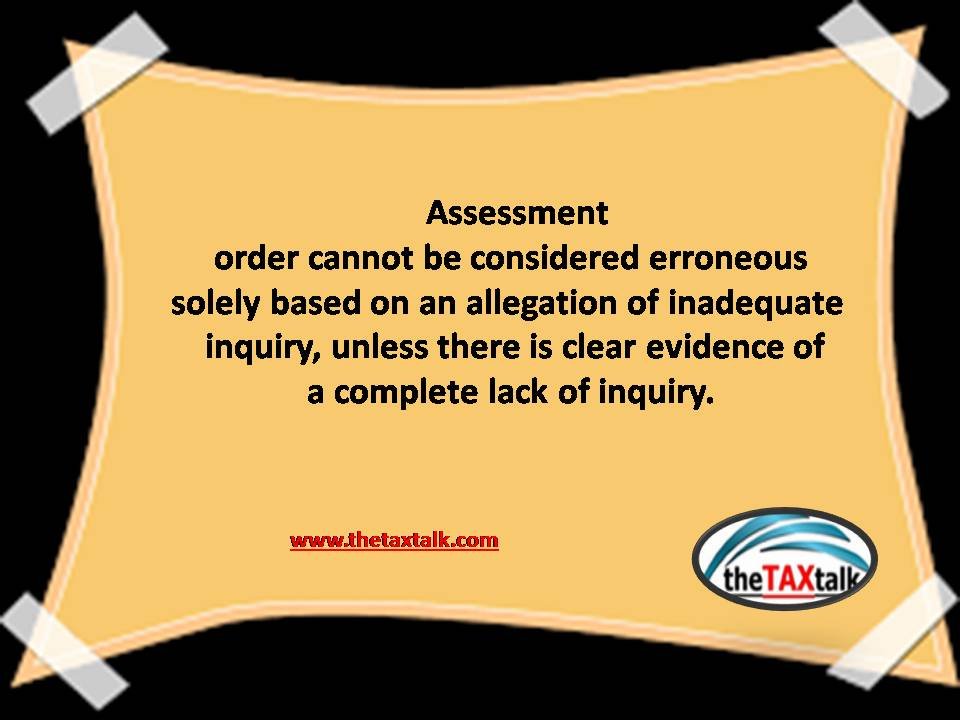![]()
Assessment order cannot be considered erroneous solely based on an allegation of inadequate inquiry, unless there is clear evidence of a complete lack of inquiry.
Shri Vishnu Dattatraya Ponkshe
Vs.
CPC Bengaluru
[ ITA No. 1570/Mum/2023]
ITAT Jaipur bench in the case of Smt Gayatri Devi v. PCIT [ITA No.405/JP/2022] has held that an assessment order cannot be considered erroneous solely based on an allegation of inadequate inquiry, unless there is clear evidence of a complete lack of inquiry.
The law is well settled that the assessment order cannot be held to be erroneous simply on the allegation of inadequate enquiry unless there is an established case of total lack of enquiry. The reference may be drawn from the decision of CIT vs. Sunbeam Auto Ltd. (2011) 332 ITR 167 (Del) wherein Delhi High Court was considering the aspect, when there is no proper or full verification, and it was held that:
“One has to see from the record as to whether there was application of mind before allowing the expenditure in question as revenue expenditure. Learned counsel for the assessee is right in his submission that one has to keep in mind the distinction between “lack of inquiry” and “inadequate inquiry”. If there was any inquiry, even inadequate that would not by itself give occasion to the CIT to pass orders under section 263 of the Act, merely because he has a different opinion in the matter. It is only in cases of “lack of inquiry” that such a course of action would be open.”
In another case of Narain Singla v. PCIT [2015] 62 taxmann.com 255 (Chandigarh – Trib.) it was held that when AO was fully aware of matter, he had appraised evidences filed by assessee and then had formed a view to accept same, Commissioner was unjustified in invoking jurisdiction under section 263. Whether if there was an enquiry, even inadequate, that would not, by itself, give occasion to Commissioner to pass order under section 263, merely because he has a different opinion in matter; it is only in case of ‘lack of inquiry’ that such a cause of action can be open.
The ITAT considered above cases along with some other case and concluded that the assessment order under Section 143(3) of the Income Tax Act was not deemed erroneous or prejudicial to the interest of revenue.
The case detail is as under:
Smt Gayatri Devi
Vs.
PCIT
[ ITA No.405/JP/2022]

